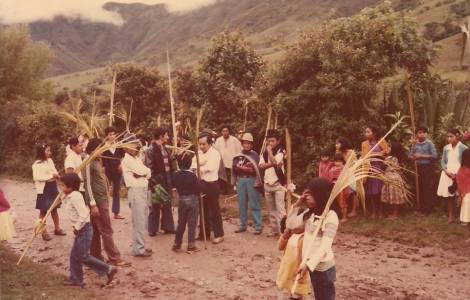
IMC
Toribio (Agenzia Fides) - "Thank you for having walked with us, for being part of our history," were some of the words that resonated during the Mass of thanksgiving celebrated on Sunday, January 26, which marked the 41 years of presence of the Consolata Missionaries in Toribío, in northern Cauca.
"The end of the presence of the missionaries in Toribío marked the end of a historic stage, but not the end of a mission," reads a note released by the missionaries. "The seed sown for more than four decades continues to bear fruit in community leaders, families strengthened in their faith and a local Church committed to justice and peace."
For more than four decades, the Consolata Missionaries have walked alongside the communities of Toribío, a territory rich in indigenous cultural heritage, but also marked by deep social and political difficulties. The missionaries have witnessed resistance, solidarity and commitment to the indigenous, peasant and Afro-descendant communities of the Nasa indigenous people.
"Dear family, we greet you from this parish church of San Giovanni Battista and from this town of Toribío: 'We did what we had to do'," said Father Venanzio Mwangi, Regional Superior, citing the teachings of their Founder San Giuseppe Allamano.
The ceremony brought together a large crowd of faithful, community leaders and representatives of local organizations, who expressed their gratitude for the pastoral and social work of the missionaries. They recalled the history shared with the community, evoking moments of joy and pain, the struggles for social justice, the defense of the territory and the promotion of peace in the midst of armed conflict.
In Toribío, the Consolata Missionaries arrived after the violent death in 1984 of Father Álvaro Ulcué Chocué, the first indigenous priest of the Nasa ethnic group, ordained in the Church of the Archdiocese of Popayán, whose example has inspired their work and whose legacy lives on in the region.
Over the years, the missionaries have integrated themselves into the communities, not only as spiritual guides, but also as allies in building a more dignified future. They have built parishes, trained community leaders and strengthened an inculturated spirituality that respects and values the ancestral traditions of the Nasa people.
The Cauca region is particularly strategic because it brings together in one place all the phases of work and marketing: illicit crops, processing workshops and the important routes, the paths that drugs take to leave the country illegally. (AP) (Agenzia Fides, 31/1/2025)